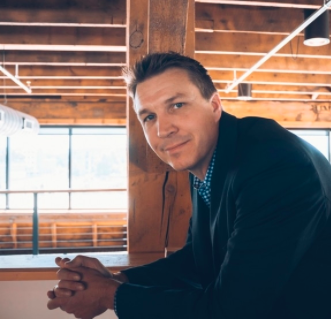363: Know, Like and Trust is Not Enough

Podcast: Download
I have been at this alternate investment game since I finished surgical residency in 2009. Luckily, since then my wins have significantly outnumbered my losses and I have made a lot more money than I ever did as a physician.
But It hasn’t always been smooth sailing. The first apartment building I bought for myself in 2010 was a big flop. Why? Well, I knew how to do real estate from reading lots of books and crunching numbers, but I didn’t really know how to not get bamboozled. Let’s just say the seller in that first deal was creative with his financials and I didn’t anticipate blatant fraud while I was doing my due diligence.
I should have known better than to buy in a D-class South Side Chicago neighborhood anyways. I lost $300K when I sold that building but it was a tremendous relief to get it off my hands. Sound horrible, I know. But frankly, the amount I learned by experiencing my own personal real estate horror story was priceless. Since then, I’ve never lost money on any apartment building.
When I started investing in assets as a limited partner, the skill set for success was different. Early on, I was given some reasonable advice: Only invest with those who you know, like and trust. That’s not terrible advice but what I’ve realized over the years is that it is incomplete. There is a lot more to investing than to know, like and trust the operator.
For example, you may know, like and trust your brother-in-law who is starting out in real estate syndication. But that doesn’t mean he knows how to operate a multimillion-dollar asset. He may give it his best shot but that doesn’t make him competent and certainly does not put your investment in good hands.
Know, like and trust is only useful to the extent that it should give you some confidence that someone is not trying to rob you (on purpose). After that, you have to do your own research. Ronald Reagan used to say, “Trust…but verify”. You can trust the operator but you still need to verify their competence. Ask a lot of questions. Look at the qualifications of the team to carry out the business plan put forth and be cognizant of the operator’s track record.
If you do all of these things, you will minimize your risk of disappointment. I say minimize because there are no guarantees in the world of investing. In competent hands, real estate will provide a profitable outcome most of the time. But not always.
So what is an alternative investor to do? The task of vetting where you deploy your assets may seem both critically important and daunting. So, what are your options? Well, you could give up and invest in Vanguard ETFs. If you do that, you might be able to preserve your wealth but you aren’t going to get wealthy. Alternatives create wealth on a regular basis.
So what else can you do to maximize your chances of success? I have said this before but will say it again—there is great power in collective intelligence—especially if people bring different skill sets to the table. At the very least, creating such a tribe of like-minded individuals will help to pool the right questions to ask about any opportunity.
So how do you put together a tribe? After all, chances are that your friends and family are not into this stuff. If they are, you are all set. Otherwise, you may need to go to some in-person meetings like our Wealth Formula Events and network with others of like mind.
The concept of tribe is really important in alternative investing. My guest on this week’s Wealth Formula Podcast created a business to help various tribes to deploy capital in an efficient way. Make sure to listen in for some ideas on how you and your tribe could use these tools!

Tribevest CEO, Travis Smith, dreamed out loud about building generational wealth and forever altering our family’s financial trajectory. However, he’d never been introduced to ways of private investing, and wealth-building seemed out of reach. Travis and his brothers realized that they could overcome our lack of experience and know-how if we worked together.
But they had to confront the more obvious and immediate barrier — we lacked the capital required to break into wealth-building, freedom investments. By forming and funding an Investor Tribe, they unlocked a new future and the secrets of the wealthy.
Shownotes:
- TribeVest.com/wf and use the code “BUCK50”
 Send Buck a voice message!
Send Buck a voice message!



